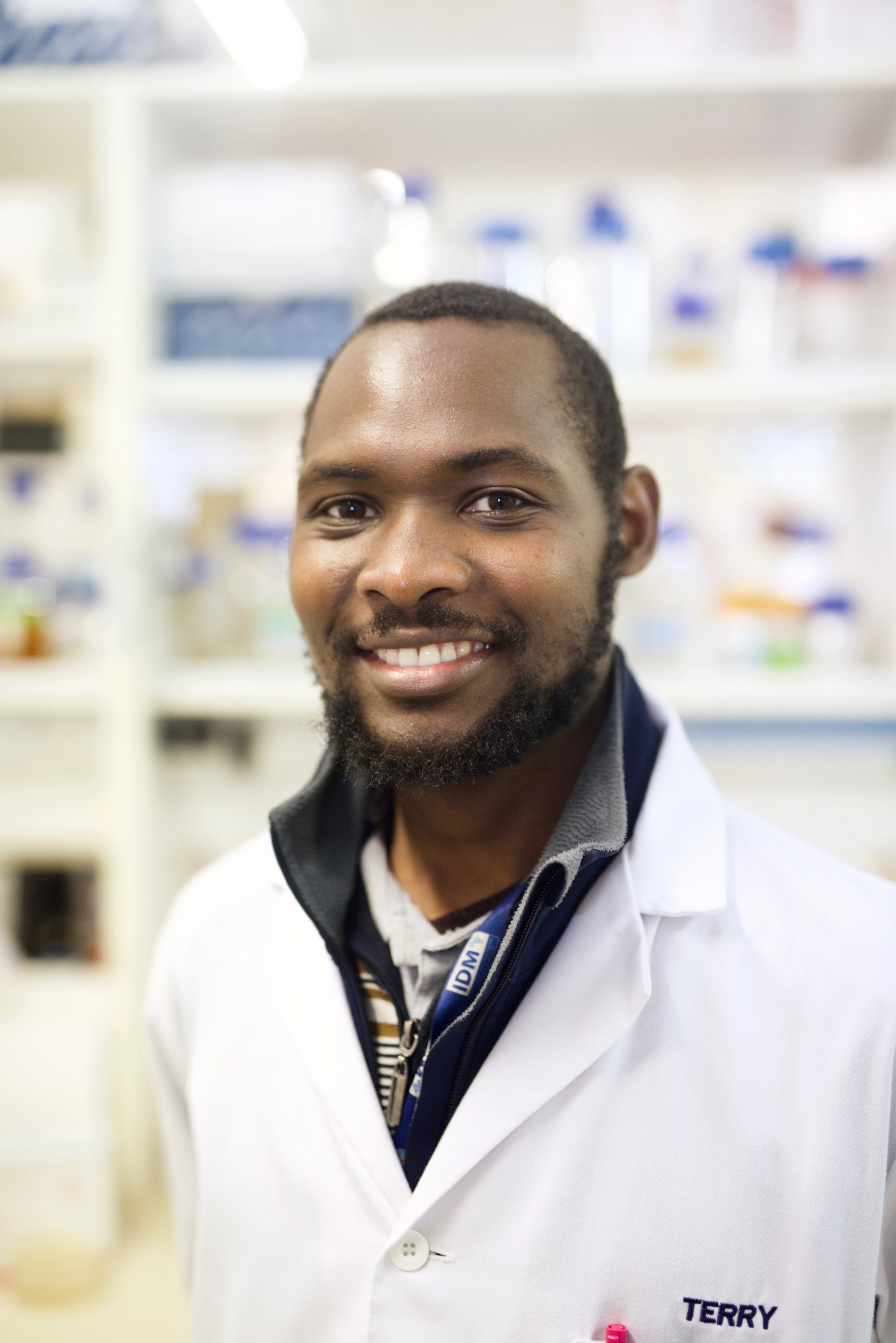Paper offers insights into cobalamin’s role in mycobacterial physiology and pathogenicity

PhD graduate, Terry Kipkorir, is based in the South African Medical
Research Council / National Health Laboratory Service / UCT Molecular
Mycobacteriology Research Unit at the IDM and Department of Pathology.
In a paper recently published in the Journal of Bacteriology, researchers at the Institute of Infectious Disease and Molecular Medicine (IDM) at the University of Cape Town’s Faculty of Health Sciences show that Mycobacterium smegmatis, a soil-dwelling model for Mycobacterium tuberculosis (M. tb), produces its own cobalamin, a form of vitamin B12 which is required in a number of central metabolic pathways. The paper also describes the conditions under which this bacterium efficiently takes up the vitamer from growth media.
Speaking about the work, which is entitled “De novo cobalamin biosynthesis, transport and assimilation and cobalamin-mediated regulation of methionine biosynthesis in Mycobacterium smegmatis," PhD graduate Terry Kipkorir said: “We also describe a mechanism by which cobalamin-sensing via an RNA switch indirectly controls a cobalamin-dependent enzyme that produces methionine, an amino acid essential for bacterial growth.”
He further explained that, “The ability to biosynthesise cobalamin is believed to have been lost in M. tb during its evolution from a non-pathogenic environmental ancestor to a modern human pathogen. Therefore, our findings provide key insights into the roles of cobalamin in mycobacterial physiology and pathogenicity.”
Kipkorir is now an Academy of Medical Science/Newton International Fellow at the Institute for Structural and Molecular Biology, University College London.
Speaking about the work, which is entitled “De novo cobalamin biosynthesis, transport and assimilation and cobalamin-mediated regulation of methionine biosynthesis in Mycobacterium smegmatis," PhD graduate Terry Kipkorir said: “We also describe a mechanism by which cobalamin-sensing via an RNA switch indirectly controls a cobalamin-dependent enzyme that produces methionine, an amino acid essential for bacterial growth.”
He further explained that, “The ability to biosynthesise cobalamin is believed to have been lost in M. tb during its evolution from a non-pathogenic environmental ancestor to a modern human pathogen. Therefore, our findings provide key insights into the roles of cobalamin in mycobacterial physiology and pathogenicity.”
Kipkorir is now an Academy of Medical Science/Newton International Fellow at the Institute for Structural and Molecular Biology, University College London.
Read the paper here.
